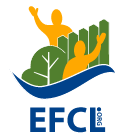Original guidelines remain today
The guidelines of the league were to ensure it was inclusive, regardless of class or ethnicity, open to both men and women (well ahead of its time), and did not have any affiliation with any political party or religious order. Its mandate would be on providing civic advocacy on behalf of its community, plus develop social and recreational opportunities and infrastructure. These guidelines and the mandate have never changed and are adopted by each new community league.
By 1920, along with Crestwood, there were nine leagues: Bonnie Doon (1918), South Side (1918, reformed as Scona Centre in 1926), Westmount (1919), Riverdale (1920), West Edmonton (now Calder, formed in 1920), Forest Heights (1920), Calgary Trail (now Allendale, formed in 1920), and Bennett School (now Cloverdale, formed in 1920).
Just as it is today, each community league had its own unique needs and the leagues of the 1920s realized that rather than each trying to reach the ear of the city government, they would do better by being united. In early 1921, the nine leagues met and agreed that a centralized organization, which represented them all, would have a much stronger voice with City Council and other orders of government. Thus, the Edmonton Federation of Community Leagues (EFCL) was founded on January 24, 1921, with representation from each league on its board.
The executive was made up of Thomas P. Malone as the first EFCL president, Harold Percy Brown, the secretary-treasurer and Canon C.F.A. Clough, the first vice-president. The three were responsible for drafting the bylaws and guiding the EFCL’s objectives of ensuring information was shared among the league members, provide a united civic voice in common interest matters that affected both leagues and the city, promoting educational and recreational programs, plus provide support to the individual leagues when asked or when it was needed. These same objectives guide the EFCL Board today.
It took a bit, but by perseverance and by the leagues continuing to work together, the EFCL established its place with the city as the voice of the people on matters of civic and recreational matters.

